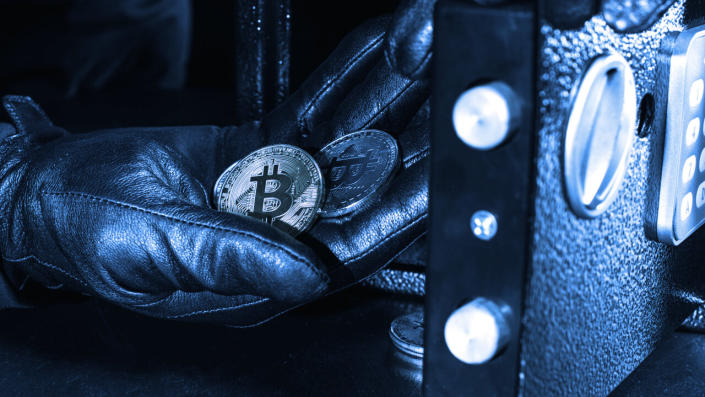At Least $3.6 Million in Bitcoin is Lost by Bitcoin Core Dev to a Hack

According to Luke Dashjr, who calls himself "the longest contributing Bitcoin Core engineer," "essentially all" of his Bitcoin holdings were plundered on New Year's Day by an unidentified hacker.
Although the entire amount of stolen Bitcoin is unknown, Dashjr tracked "part of it" to a wallet address that got little under 217 Bitcoin, or around $3.6 million at the current exchange rate.
In a Reddit conversation, Dashjr later claimed that a compromised PGP (Pretty Good Privacy) key was to blame for the hack of his Bitcoin wallet and that the attacker's IP address originated from a ColoCrossing server. The last time he had access to his cold wallets, he claimed, was in September, albeit he was unable to explain how they came to be hacked.
Looks like some of it is coinjoined to 1YAR6opJCfDjBNdn5bV8b5Mcu84tv92fa
— @LukeDashjr@BitcoinHackers.org on Mastodon (@LukeDashjr) January 1, 2023
In a subsequent tweet, Dashjr accused ColoCrossing of "missing the ball on abuse investigation last time" and pledged to switch server providers. A security breach that he tweeted about in November was also mentioned as possibly being related to the hack by some of the respondents.
Dashjr to more inquiries on Twitter, declaring that he thinks "everything is compromised," maybe including his Twitter. Additionally, he strongly advised against using Bitcoin Knots, a Bitcoin wallet that was signed with his own PGP key, which is currently hacked. Dashjr unsuccessfully tweeted the FBI for assistance.
Changpeng "CZ" Zhao, the CEO of Binance, expressed his support, stating that he had alerted the exchange's security team about the theft and that "we will freeze it" if any cryptocurrency connected to the attack was transmitted to Binance.
Security and Self-Care
Zhao promptly sent out a follow-up tweet that included a link to Dashjr's thread as an illustration of the dangers of keeping cryptocurrency in wallets with sole custody.
Sad to see even an OG #Bitcoin Core Developer lost 200+ BTC ($3.5 million). Self custody have a different set of risks.
— CZ 🔶 Binance (@cz_binance) January 1, 2023
We will try to monitor and see where we can help. 🙏 https://t.co/9eGZ7AFgC2
Self-custody options include a wide range of hardware and software platforms and are broadly characterized as DeFi exchanges, hot wallets (online software wallets), and cold wallets (hardware wallets). Consumer interest in the latter two has increased throughout the ongoing "Crypto Winter" (industry insolvency issue) disaster.
How to Transfer Cryptocurrencies to Your Own Control
People became more interested in moving their balances off of accounts managed by centralized companies, such exchanges and lenders, and onto self-custody alternatives as contagion from the historic collapses of Terra and FTX spread in a year where record amounts of cybertheft reports were made.
Changpeng Zhao warned that "99% of individuals" will lose the cryptocurrency they hold utilizing self-custody solutions in a Twitter Spaces lecture after billions of dollars' worth of cryptocurrency were removed from Binance in a single day.
Post a Comment